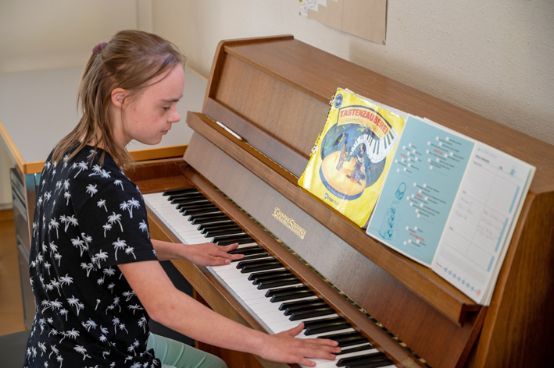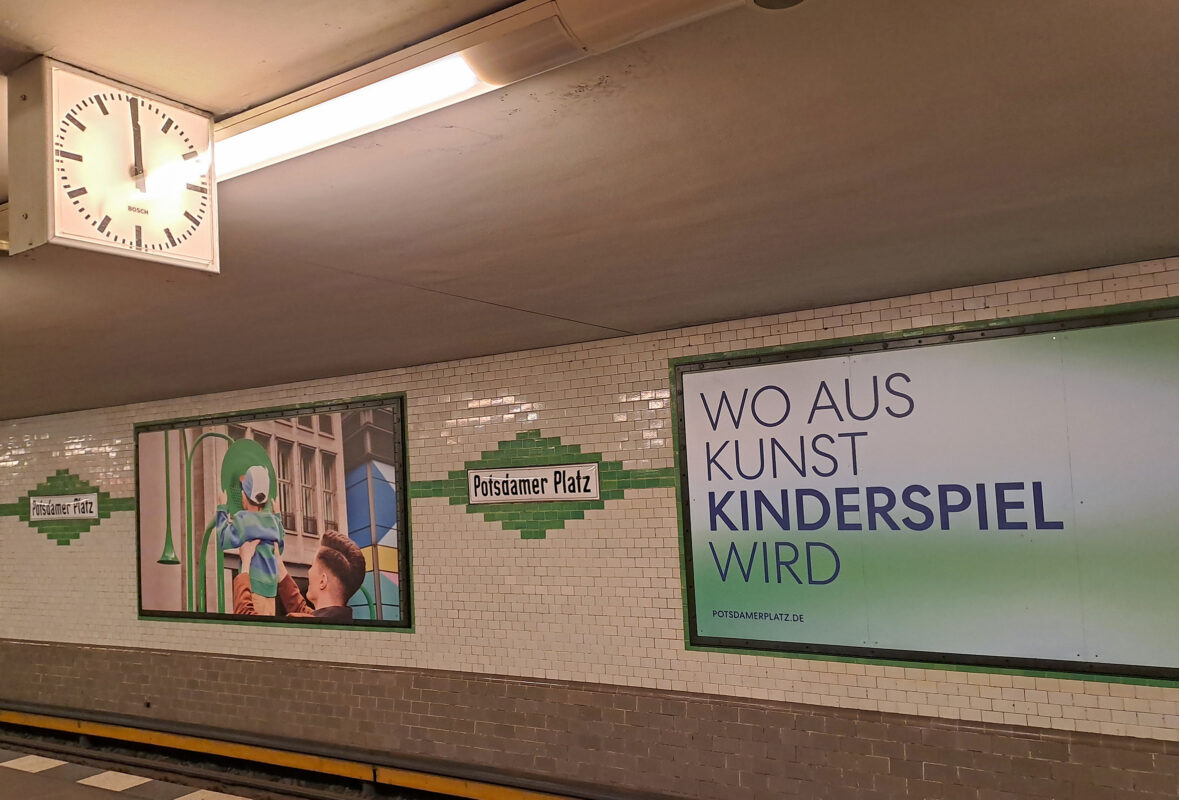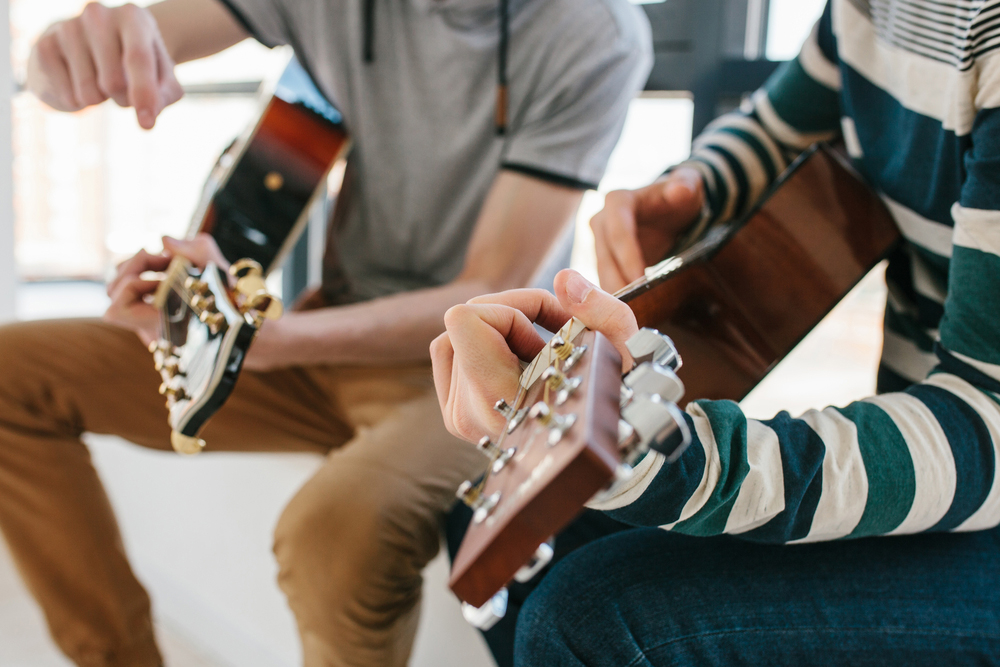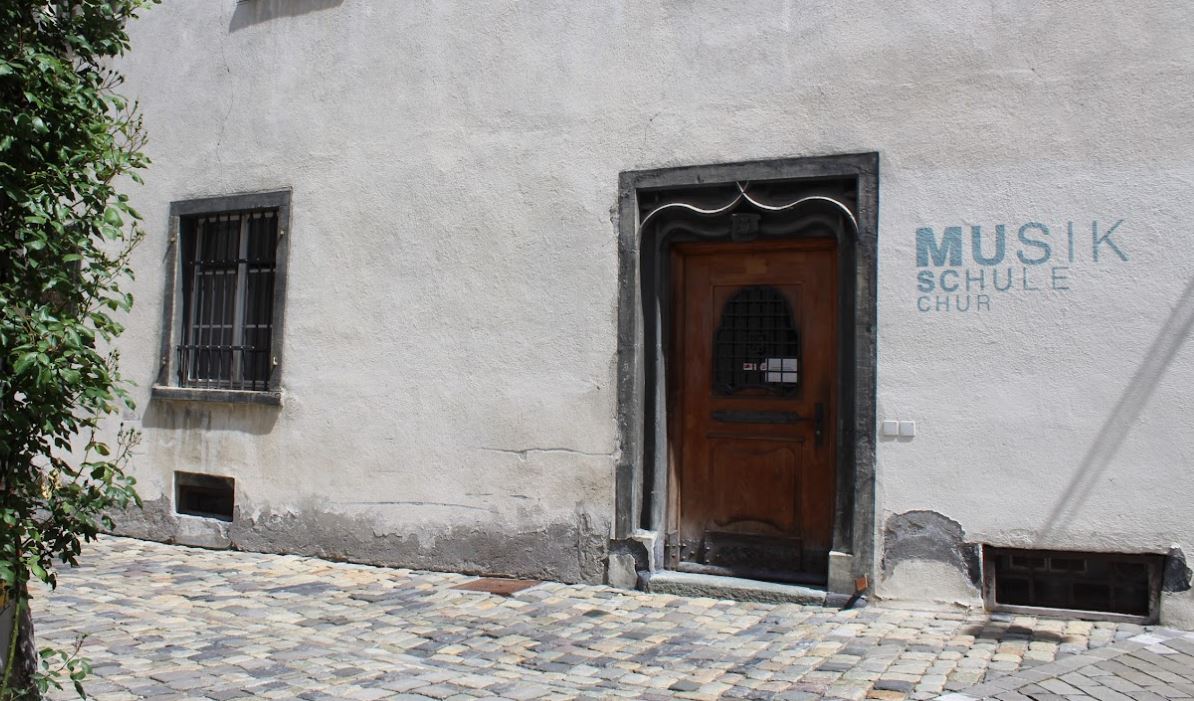Inclusion in everyday music school life
"Fiona's favorite song is 'Sternschnuppe' and she really likes her piano teacher Sophie!" - How to successfully teach children and young people with disabilities at music schools.

Fiona-Olivia Plüss is 17 years old. She has been taking piano lessons at the Musikschule Konservatorium Zürich (MKZ) for more than five years, three of them with music teacher Sophie Aeberli. The fact that access to music lessons was so straightforward for her despite having Down's syndrome certainly has something to do with the pragmatic approach taken at the MKZ. There is no specific support or integration program for children with disabilities. The lessons are "inclusive" and - as Sophie Aeberli puts it: "I approached them without fear and with 'Gwunder'."
In conversation with Fiona, her parents and Sophie Aeberli, it becomes clear how beneficial such lessons can be for everyone. Nevertheless, the number of children and young people with disabilities who are taught at music schools is still in the low single-digit percentage range.
"I want that too!"
Fiona's introduction to the piano was via the melodica. Fiona learned to read music and play a keyboard instrument. When her older sister wanted to take piano lessons, Fiona said: "I want that too!" Anyway, Fiona was always there everywhere. Her parents were strongly committed to the inclusive path. Fiona attended the same regular kindergarten and then elementary school as her sister. Today, she attends the second secondary school class at Zurich's Letzi school with the children from the neighborhood. "That was the best decision," says Fiona's father.
Access to the municipal music school was easy, although neither the website nor other publications refer to the range of inclusive music, dance and theater lessons. A recent survey of teachers at the MKZ revealed that significantly more pupils with disabilities are being taught than was previously known.
Fiona is enthusiastic about her lessons with Sophie Aeberli. She beams when she talks about her piano teacher. In addition to piano lessons, she attends drama lessons with drama teacher Arniko Dross with a group of MKZ pupils. She practices regularly, independently and is proud to have something "for herself". She also really enjoys her auditions. Fiona doesn't really have stage fright, she is in her element on stage. Her mother remarks: "Her older sister would have loved to run away during the audition, but Fiona enjoyed the performance."
We ask her mother whether her musical education has influenced Fiona's development. She says: "I think so. But because she is currently also receiving good support at school, it is difficult to assess what has what effect. André Frank Zimpel, a professor specializing in mental development and disability education at the University of Hamburg, also believes that playing the piano is one of the best ways to promote coordination. It has an effect on the brain, just like singing and dancing."
"We meet at eye level"
Sophie Aeberli sees Fiona's great enjoyment of music as the key to her success: "I often let her play. So that she doesn't have the feeling that she has to learn this or that. The point is, we simply get on well as people and meet as equals." For her, there is no separation between special support or didactics and normal lessons. The practice is probably somewhere in the middle.
Did she adapt the piano lessons specifically for Fiona? "We read less music, it takes too much time. Fiona's motor skills are rather tense, but her fingers are strong. Fluency or speed are therefore not her thing, so I prefer to focus on other topics such as sound," reveals the music teacher. It's also important that Fiona doesn't get into stress mode. She has started to play a lot by heart with Fiona, which works well. Sometimes she records what she plays in a kind of graphic notation. Aeberli also encourages her to play together with a friend (who also has Down syndrome). "We deliberately set ourselves smaller goals, but we achieve them."
Training and working environment
Inclusion was not an issue during her training as a piano teacher in Lucerne, or at most was only mentioned in passing. Aeberli therefore took a rather pragmatic and intuitive approach to Fiona's lessons. She didn't do much research, but tried out different things. After all, in one-to-one lessons, every pupil is something special and she always responds differently to learning styles and speeds. Now, however, she feels the need for specific further training or an exchange between teachers. One topic that concerns her is the assessment of performance in level tests. Aeberli is critical of purely performance-oriented assessments because the differences between pupils are seen as a weakness and not an asset. If, on the other hand, concerts and level tests are designed as playful, motivating moments of making music together and exchanging ideas, everyone can participate, as is the case at the MKZ.
With around 23,000 students, the MKZ is the largest music school in Switzerland and one of the largest in Europe. There is not (yet) a concept for the inclusion of students with disabilities for the approximately 600 qualified music, dance and theater teachers. Opportunities for further training or exchanges take place occasionally. However, there is a great deal of openness on the part of the management and teaching staff.
Sophie Aeberli advises teachers who are new to such a task to remain relaxed, to seek an exchange with experienced colleagues and to establish constructive contact with parents.
The Bern Conservatory Music School is playing a pioneering role. On its website, it explicitly refers to its music lessons for people with disabilities. The lessons are individually adapted. There are also band lessons for people with disabilities. A separate concept goes into the various methods. Among other things, lessons for people with cognitive impairments are coached and supervised by the Bern University of Teacher Education. The music school bears the "Kultur inklusiv" label, an award for cultural institutions that are particularly committed to the topic of inclusion.
Further information
- Spectrum Inclusion - we are part of it! Ways to develop inclusive music schoolsVdM, Association of German Music Schools (a very comprehensive guide with concrete examples)
- Making music with a disability at the Bern Conservatory Music School (Concept for inclusive access and teaching)
- Because disability is not an obstacle, Thurgau Music Schools Association in collaboration with Pro Infirmis and Insieme Thurgau
Author and author
Eva Meroni, Managing Director of Profile Work & Handicap Foundationand
Patrick Vogel, Member of the Executive Board of Zurich Conservatory of Music MKZare completing the Executive MBA of the Lucerne University of Applied Sciences and Arts - Business.








